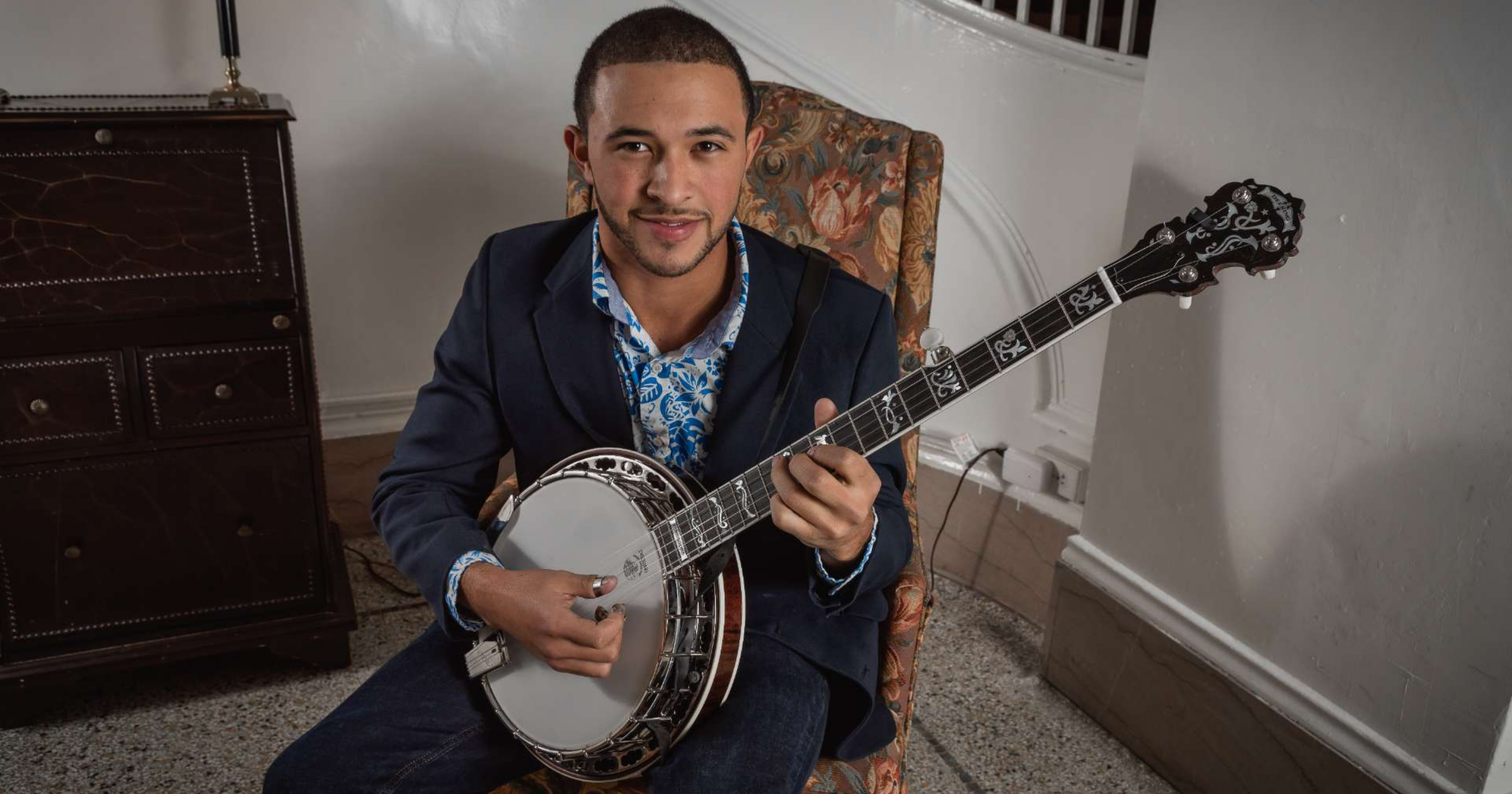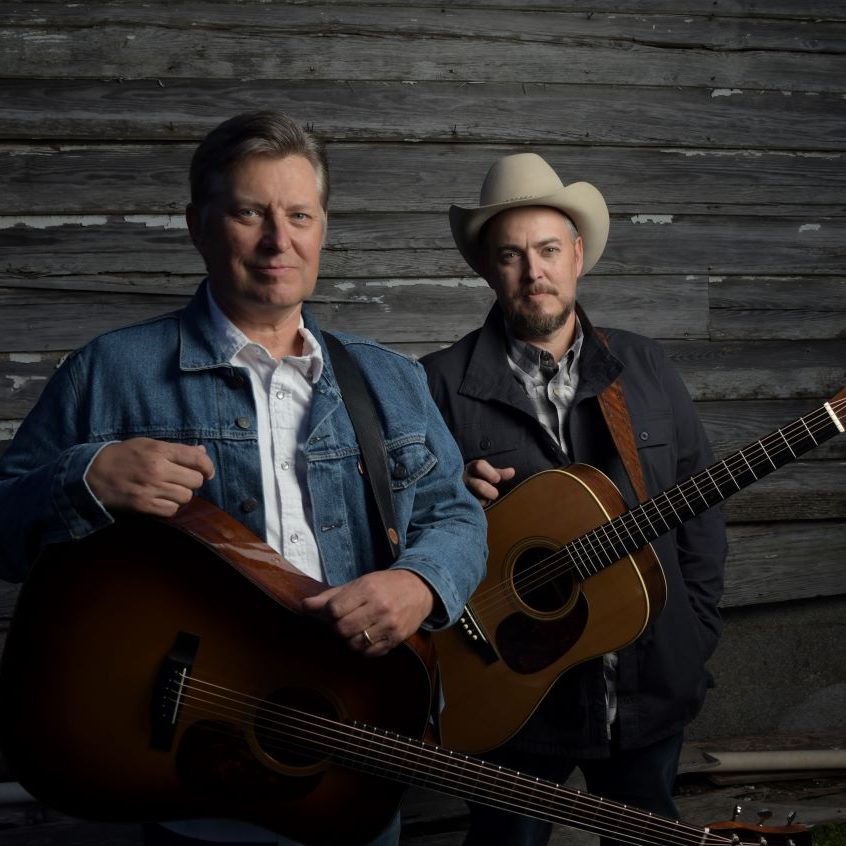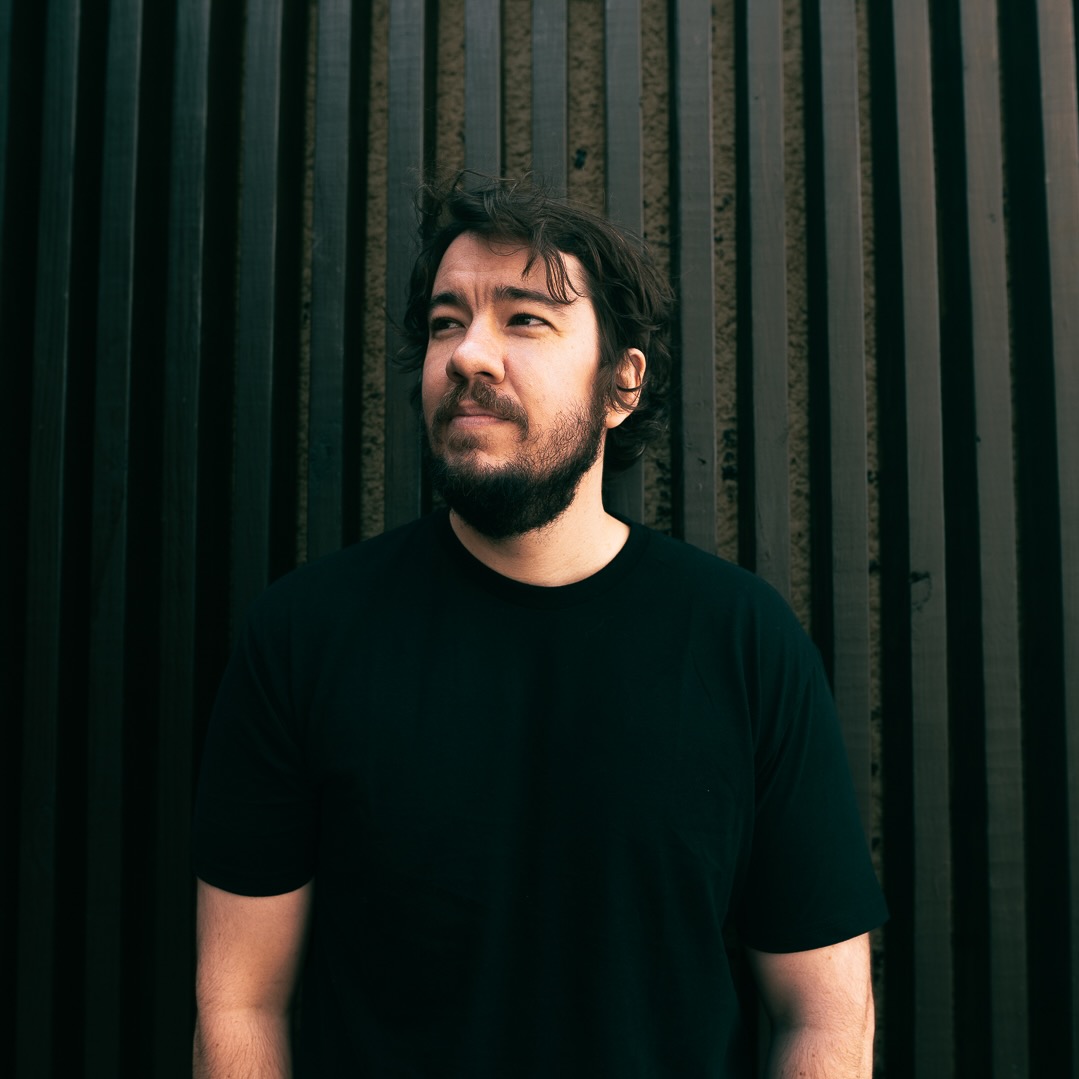A few short weeks ago the streets of Raleigh, North Carolina, were once again filled with bluegrass lovers at IBMA’s World of Bluegrass conference and festival. Banjoist and Momentum Award winner Tray Wellington was everywhere to be found during the festivities — performing, hosting this year’s Momentum Awards luncheon, and playing a main stage set at the Red Hat Amphitheater. This is remarkable because if you had looked for Wellington at IBMA just a few short years ago, you might not have run into him except on the youth stage or in the halls, jamming.
Catapulted by his prior work with the talented young band Cane Mill Road, his studies at East Tennessee State University’s bluegrass program, and a stable of accomplished and connected mentors and peers, Wellington went from a newbie to a seasoned veteran faster than a global pandemic could subside — and during it. Efforts for better and more accurate representation in bluegrass have contributed to his momentum (no pun intended), but above all, his talent and his envelope-pushing approach to the five-string banjo are the root causes of his mounting and well-deserved notoriety.
Last year, during World of Bluegrass, Wellington performed as part of our Shout & Shine Online virtual showcase. For 2021’s edition of the biggest week in bluegrass, we connected via phone after the conference to talk about these leaps and bounds in his career, the ever-increasing tempo of his music-making and performing, and what’s coming up next for the young picker. We also discuss why making the bluegrass community more inclusive is so important — and how his own progress in the industry over a few short years reinforces that point.
Tray Wellington: [Laughs] Yeah, it was kind of a crazy week! It was a lot of new things, like you said, that I’ve never done before. But I think it really opened me up to a lot more ideas of what I can do in the music industry. I started out the week going to the business conference and then on Wednesday I hosted the Momentum Awards. And that was kind of a crazy thing for me, you know, I’ve never done anything in that regard, as far as hosting a whole awards show. I got asked to do it and I was kind of nervous about actually doing it. I remember getting up there like, “Dang! I can’t back out now!”
It’s a cool experience! Especially when people come up to you afterwards and tell you you did a good job. It makes you feel good about your progress over the last couple of years and I’m glad that people put faith in me and thought I would do a good enough job at it so they did ask me to do it.
You’re going from being an instrumentalist, a sideman, and a technician of the instrument to being a frontman and a recording artist. I wonder how that shift has felt to you? How does it feel to be in charge and “guiding the ship?”
It’s been a really weird experience. Before, when I was just being a sideman, I had a great time with that, because it did open me up to a lot of different types of music and getting to learn a lot of music. But that’s something I still try to do with my band now. I try to incorporate those ideas from my band members, because I did learn so much [when I was in other bands]. I think the most important thing in a band is hearing other people’s perspectives. I love the other band members bringing songs to me and being like, “Hey, can we do this?” Working up their music [is just as important] as working up my music and the arrangements for my stuff.
There have been people who do great front work who choose all of the material for their bands — I’m not saying that doesn’t happen. I just think that when I’ve seen bands that really get along and take each other’s musical perspectives in, it’s been a much more natural and calm feeling. Versus the feeling of, “Oh, somebody messed something up!” That was something I felt more when I was a sideman, I was so serious. It’s good to be serious, but it’s also good to stay relaxed.
It’s interesting that you mention that, because most of the time I usually get feedback that I’m more of a progressive musician, like 95 percent of the time. So it’s interesting that you say that — I love everybody’s observations. I would say, when I was playing with Cane Mill Road I definitely had more of a traditional approach to the banjo. I still get a lot of my attack from that. When I’m thinking about music, though, I love all forms of music and I want to play all forms of music. That’s something I really try to do. I try to incorporate sounds from jazz — I studied jazz a little bit in college. That was a big thing for me, taking in those sounds and inspirations. As well as taking from other forms of music, because that’s the way the genre grows.
I’ve been really getting away from trying to sound like anybody, necessarily. That’s been my big thing. I want to be one of those musicians that tries to make my own voice on the instrument overall and gives my own ideas to it. A lot of that came from studying different players, like Béla Fleck and Scott Vestal and Noam Pikelny. Not just studying them, but studying the old school kind of stuff as well.
You just took IBMA by storm, you’re signed to Mountain Home Music Company — so much is coming down the pipeline for you it almost feels like too big of a question to ask, but I have to ask: What are you excited about? What are you looking forward to as you just finished this really busy, business-y week?
There’s a lot of stuff going on! It’s something I’m still thinking about myself, like what is my next major step? What’s the next move? That’s something I think a lot about. I’m looking forward to getting out and playing music live again next year. I’m playing more music live this year, but not as much with the pandemic. It’s slowed everything down. I’m also looking forward to getting into the studio at Mountain Home and recording — well, finishing my album. We’ve got some stuff recorded, but we’re kind of in the process of planning and trying to finish that project. I think it’s going to be really fun. I’m really trying to get away — not to like, disagree with what you said earlier! [Laughs] — but I’m really trying to get away from people perceiving me as more of a traditional player.
You’re trying to sound like Tray Wellington.
Exactly. I’m trying to branch away. I’m more drawn to the modern sounds, so when I present this new album I am wanting it to be more of an eclectic kind of thing.
I’m also excited about this upcoming performance I did for CNN on W. Kamau Bell’s program, United Shades of America with Nikki Giovanni. We did it at the Highlander Center, which is a historical civil rights school [in East Tennessee]. We went up there and I got to sit with Kamau and Nikki and a lot of great organizers from the area and get to play music for them. It was super fun. I’m wanting to do more stuff there in the future. It’s such a historic place. It’s crazy, before this shoot I didn’t know what the Highlander Center was and I grew up an hour and twenty minutes from there. The government of Tennessee hates the Highlander Center for their work there. It’s such a taboo thing to talk about in East Tennessee. I had never heard of it. They gave me a whole tour of the place and told me a ton of the history and I was like, “I’ve never even heard of this!” They had a building burnt down like two years ago by white supremacists.
I know!! And this is after the state and the KKK trying so many times to run them out. It’s shocking so few people know about it, but that’s all by design. I’m so glad to hear you’re connected there! Especially with the current movement for inclusion in this music, it makes so much sense to partner with an organization like the Highlander Center, which is based in the home region of these musics and has always been a leader in the fight for justice.
Yeah, absolutely. With diversity and inclusion in bluegrass, there needs to be more focus on it. Because the typical bluegrass fan base is white people, no matter what walk you’re from. It’s a lot of white people and white men, just to be honest. I think it’s one of those things where, if you want to get outside people into the music you need to encourage people who are of diverse backgrounds that this music can be inclusive. That’s the way that you move towards more people doing it. There have been a lot of factors that have contributed to this. The biggest problem I’ve seen is not a whole lot of nationwide outreach. There are a few great programs, like Jam Pak in Arizona by Anni Beach, she’s doing great work right now.
We just interviewed Fair Black Rose, of Jam Pak, for the other part of our special IBMA Shout & Shine coverage!
That’s great work they’re doing there! It’s a band of all diverse people from all walks of life. That’s such a great thing to see. I listened to one of their sets and I thought, “This is such a great thing.” Even when I started music I didn’t see anything like that at IBMA. It was such an interesting thing, despite the pandemic and this being a pretty low-attended year of World of Bluegrass. This was the most diverse year I’ve ever seen. … I remember going to IBMA five or six years ago for the first time and looking around and being like, “I’m the only person of color here.”
It’s that way at a lot of bluegrass festivals I go to — which is crazy, cause if you think about it, this is the International Bluegrass Music Association. There are supposed to be people from all over, as well. I’m not talking bad about IBMA, but I think the biggest need is more outreach. To people of color, but the LGBTQ+ community, too. Sometimes it’s a difficult thing to do, it can be easier said than done, but definitely I think it can be done, because other music forms have done it. For years! And they’ve had very big success. I think it just takes that initiative and drive to do it.
Photo courtesy of Mountain Home Music Company






